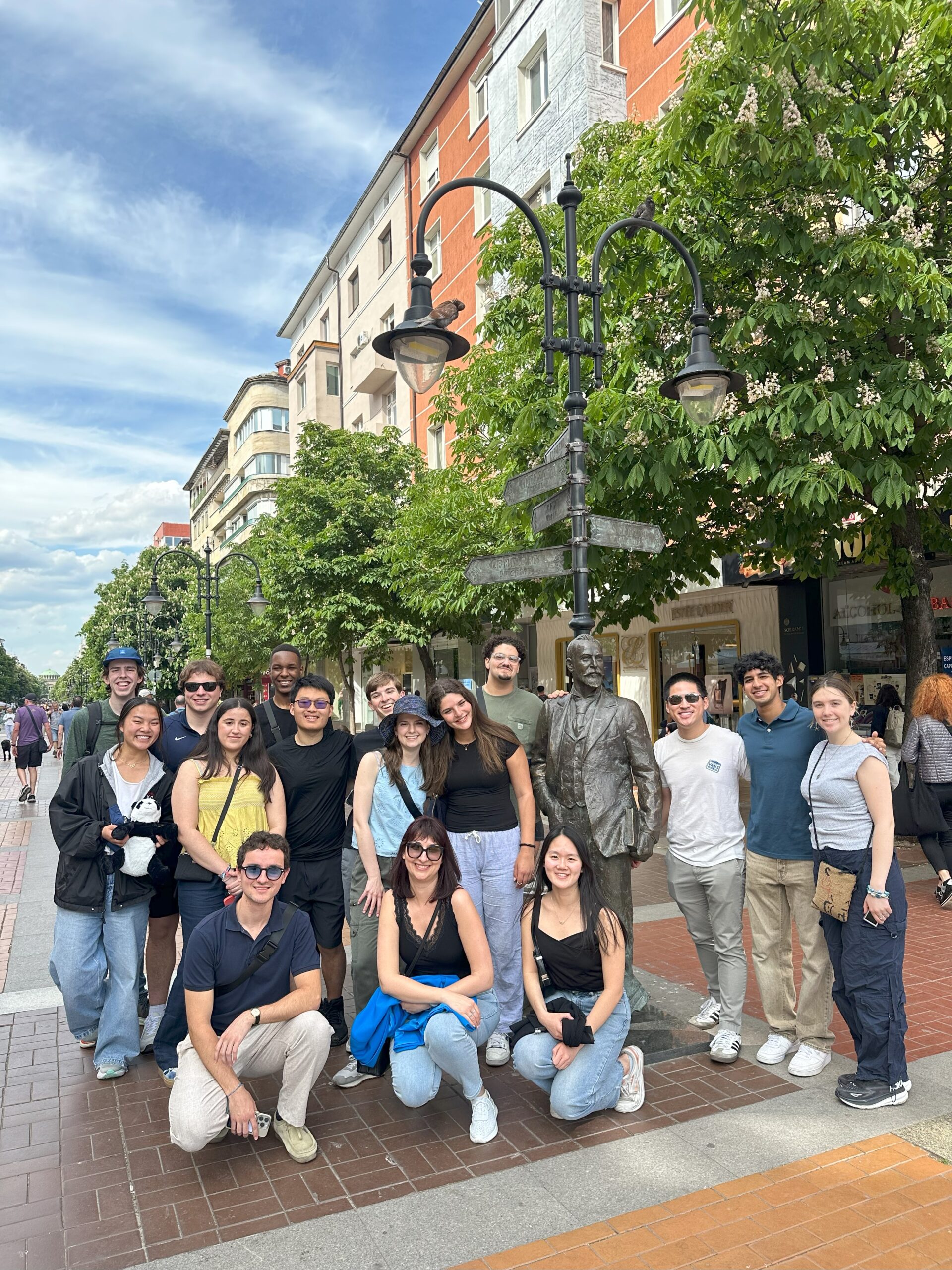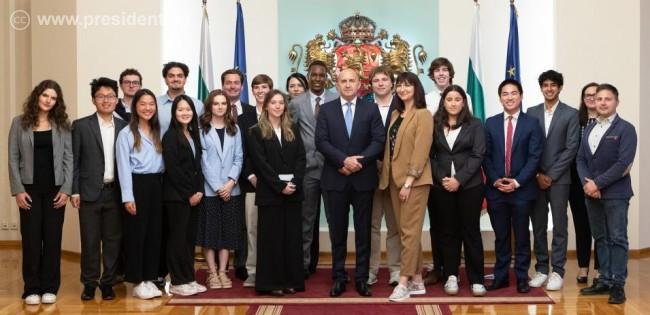
Bulgaria: Small Country, Big Crossroads
PGS: European Foreign and Security Policy in Times of Crisis
Avia, one of the Penn Global Seminar Correspondents, shares her experience abroad during the May 2025 travel period. Follow along with the group of correspondents on our blog and look out for their images on the @pennabroad Instagram feed.
I think it is a reasonable assumption that when the average person thinks of Europe, Bulgaria does not necessarily come top of mind. Despite this, my time in Bulgaria taught me about the importance of small states in the international relations narrative and the genuine charm of humanity. There are many bits of Bulgaria that made the past eight days special. Like any other tourist, I will obviously say the food, people, and architecture. However, this global seminar focused on our roles as academic travelers. Traveling with the goal to study foreign and security policy, specifically among a small state enabled a focused lens that expanded my perspective on how a small country truly impacts the international policies and daily lives of citizens. Essentially, Bulgaria truly shows you that a small country sits at big crossroads emphasizing balance in all sectors. In my first blog, I discussed that I wanted to pursue hope in times of crisis. I now understand these crossroads Bulgaria faces can be applied to how we view and move about our own lives. The ultimate crossroads I took away were at geopolitical, historical, and of course, collective hope.

It goes without saying Bulgaria exists at geopolitical crossroads. As a small state in a world dominated by superpowers, agency is relative. In our lectures at the University of Veliko-Tarnovo, we discussed Bulgaria’s geopolitical strategy from a realist lens. Based on Mearsheimer’s framework, the world system is anarchic and power is a losses and gains game. In that system, smaller states like Bulgaria don’t always get a strong voice. But that doesn’t mean they’re silent. Bulgaria finds power in areas where it can lead such as regional policy, diplomacy, and through the way it navigates global institutions with caution.
The second crossroads is the historical legacy of Bulgaria’s past with the forge ahead into the modern world. As a poet-Soviet state, it balances honoring history with demands of modernity. A memorable part of the trip was hiking 500 steps up to Shipka Pass, simulating the integral battle in which Russia and Bulgaria pushed back the Ottomans to liberate Bulgaria. We learned that despite 500 years of occupation, Bulgaria still maintained its culture and language. Deeply rooted resilience is required for the balance of historical appreciation and innovation for the future.
The final crossroads, most relevant to us, is collective hope. This path is one that the individual chooses. If I got one Leva (Bulgaria’s currency) each time I heard the word “unpredictable,” I could buy endless gelato from Affredo’s! In unpredictable situations, I find myself first confronted by fear and confusion. Next, I scramble to find the first action I can take to change the situation. Yet, there is one essential step I tend to miss amidst my haste. I miss the critical thinking process by procrastinating or avoiding full thought processes altogether. If I learned anything from this trip, it is to fully embrace that thinking period. We had the honor of meeting Bulgaria’s President Radev and his core request was to lead the future with critical thinking. This is where we find hope. The people we met showed me that sitting with uncertainty, even briefly, helps us find a clearer, more thoughtful way forward. That’s where I see hope- not just in solutions, but in the shared effort to think deeply before we act.
My time in Bulgaria gave me everything needed to gain a deeper understanding of small states in theory and in practice. The lessons I learned here will not stay confined to my notebook pages. I plan to bring them into my future life and studies. I’ll keep thinking critically. I’ll keep choosing hope. And I’ll keep paying attention to the actors that often get overlooked. The privilege to take a firm stance on global issues is not one everyone has. Some are constantly negotiating, balancing, surviving. This reality helps me question and think more critically when met at any crossroads.
Read Related Blogs

Raising a Heartivist Generation: Humility is the Cheat Code
Penn Global Seminar: Compassionate Leadership: “The Power of Love, Service, and Inner Work”: Experiencing the Life of Mahatma Gandhi and other Compassion-based Leaders Mariama, one of the Fall 2025 Penn…

Lost in Translation
Penn Global Seminar: Energy Security and Geopolitics Chenyao, one of the Fall 2025 Penn Global Seminar Correspondents, shares her experience abroad during the Winter Break. Follow along with the group of…

Raising a Heartivist Generation: Atop a Giant’s Shoulder
Penn Global Seminar: Compassionate Leadership: “The Power of Love, Service, and Inner Work”: Experiencing the Life of Mahatma Gandhi and other Compassion-based Leaders Mariama, one of the Fall 2025 Penn…